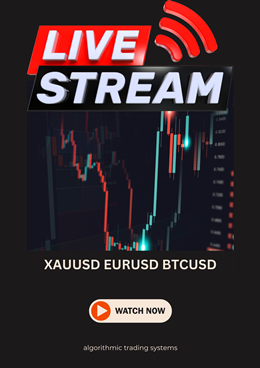- Everybody knows the price of a stock, but few know the actual value.
- There are a few things that can help you when buying undervalued assets.
- To determine if you’re investing in a good undervalued investment, consider the company’s probability of bankruptcy.
This summer, I was in Italy and buying some olive oil. As we use mostly olive oil in our kitchen, I bought 10 liters of this special oil, enough to last for a few months.
The seller came on a typical Italian scooter with the oil, and told me that the price was 100 Euro. I paid, and the seller and I continued on in a conversation about the sea, sunshine, boats, olives, and oil. The olive oil guy said that he and his family have 600 olive trees, it takes them a month to pick them in the Autumn and he usually gets about 3,000 liters of olive oil. I made the calculation and said that he makes 30,000 Euro a year just on his olives. He then corrected me that he usually sells it to locals for 7 or 8 Euros a liter, and only rarely manages to sell it to a tourist for more.
It was one of those moments in life when I felt both stupid and amazed. He didn’t even realize what he had just told me, he said “Ciao” and left me standing with my 10 liters of olive oil and 100 Euro lighter.
You might be wondering what olive oil has to do with investing. Well, there is a very important lesson to be learned here. I paid 10 Euros per liter because it was a price that reflects the value of the oil for me, what I didn’t know is that the price for locals was much lower.
With a little bit of research, I could have known the exact price of the oil, or what we all learn by watching the stock market. But what’s more important than the exact price of an asset is the value behind the asset we are buying. My olive oil situation is the exact opposite to what usually happens on the stock market, where people know the price of everything but the value of nothing.
This is the million-dollar question, but the answer can be reached.
In simple words, earnings are what give value to a company. As earnings grow, the value of the company will increase accordingly. The big issue lies in the time frame used for earnings and value. As businesses operate in cyclical economic environments, their earnings fluctuate accordingly. Therefore, Nobel Prize winner Professor Rober Shiller developed the Cyclically Adjusted Price Earnings ratio (CAPE), which uses average inflation-adjusted earnings from the previous 10 years.
The table below includes the 10-year earnings per share data on 5 companies that we’ll name later. Some are stable, and some are more volatile, but their averages are all positive.
10-year earnings
By attaching the historical mean CAPE ratio of 16.7 to the respective average earnings we get prices of $49.9 for company A, $74.23 for B, $34.21 for C, $21.10 for D and $60.45 for E.
Company A in this case is Rio Tinto (NYSE: RIO). Its price was often above $49.9 in the 10 years, but is currently still below it amidst the commodity bear market.
Rio Tinto 5-year stock price
Company B is Johnson & Johnson (NYSE: JNJ), and its price was below its CAPE price back in 2013.
JNJ 5-year stock price
Company C is Microsoft (NASDAQ: MSFT), and not surprisingly, its price was also below its current CAPE value back in 2013.
MSFT 5-year stock price
The same story holds for company D, General Electric (NYSE: GE).
GE 5-year stock price
While the stock price of company E, Consolidated Edison (NYSE: ED), was below its CAPE price back in December 2015.
ED 5-year stock price
The point of these charts it to show you that more often than not, companies come close to or are even far below their long term cyclical values. The patient investor, by carefully accounting for long term value through earnings analysis, can easily grasp the cyclicality by buying when prices are below their normal market valuation. But undervaluation leads to another question.
f the million-dollar question was how to value a company, the billion-dollar question is when to act on a found discrepancy between value and price.
Stock prices are usually below a fair value when there is something negative going on around the company. Unfortunately, this is the time when most people sell instead of buying stocks. By analyzing long term earnings and a company’s future prospects, it isn’t so difficult to estimate the value of the company.
The real question to be answered then should be, will this company go bankrupt? If the answer is no, then it is much easier to buy into a falling stock with high probabilities of nice returns as the sector or economy stabilizes.
A stellar example of this methodology is the Berkshire Hathaway’s (NYSE: BRK) acquisition of Burlington Northern Santa Fe Corporation back in 2009. Buffett seized an opportunity in the economic cycle, and bought the company at a low point for $35 billion. In the meantime, BNSF’s earnings have doubled and BRK has received more than $22 billion in dividend payments. Not bad for a $35 billion acquisition after 7 years.
The main message of today’s article is that there is plenty of time and there will be plenty of opportunities to make smart investments. There is no need to rush into purchases just because the market tells you the price or because you think the price is below the value of something like in my olive oil case.By buying only when the price is much lower than your assumed value you can sleep better and increase your long term returns.
source: investiv.co

 Events
Events Blog
Blog













